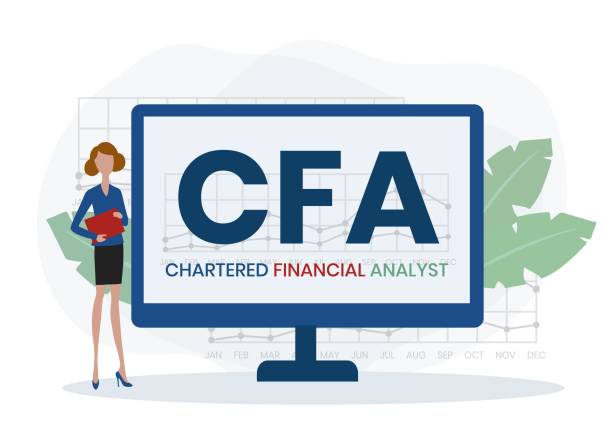re you planning for a fantabulous career? If so, then having the right qualifications can be a powerful launchpad for you! And you are just at the right place, because we are about to reveal an amazing professional course for you which is the CFA qualification. What makes the CFA so special, what is the CFA full form and how it can be your ticket to achieving those big career goals.
The CFA Qualification: A Mark of Excellence
The CFA qualification is a wonderful course and the CFA full form is “Chartered Financial Analyst”. Achieving the CFA qualification is a journey of gaining a versatile knowledge and passing a series of exams, along with practical experience. With this certification employers view the CFA holders as an individual with deep understanding of investment principles, a commitment to ethical conduct, it also signifies that you have gone the extra mile to master your craft.
Why Employers Value the CFA Charter
In today’s competitive job market, employers are constantly seeking individuals who can hit the ground running and contribute meaningfully to their organizations. The CFA program equips candidates with a comprehensive skillset that directly addresses the needs of the investment management industry. Here are some key reasons why employers hold CFA charter holders in such high regard:
- The CFA curriculum covers a broad range of investment topics, from fundamental analysis and portfolio management to economics and ethical standards. This ensures that charter holders have a well-rounded understanding of the financial landscape.
- The exams of the CFA course are designed with such precision that the students who prepare for its subjects develop and hone their skills in the field of finance, analytics, and investment.
- The CFA Institute places a strong emphasis on ethical conduct. Charter holders are bound by a strict Code of Ethics and Standards of Professional Conduct, giving employers confidence in their integrity and professionalism.
- Earning the CFA charter demonstrates a significant commitment to continuous learning and professional development. This is a highly valued trait in the dynamic world of finance.
- Your biggest wealth in today’s world is the network and contacts that you have, CFA community is a widespread network, due to which you can learn from individuals with high experience and knowledge.
The CFA Program: A Three-Level Journey
The CFA program is structured as a three-level sequential examination. Each level builds upon the knowledge gained in the previous one, culminating in a comprehensive understanding of investment management principles and practices.
- Level I: Foundational Knowledge: This is the basic level that develops your base for the topics like investment, finance management, and risk management. It provides you knowledge on how to use tools for making analysis decisions.
- Level II: Application and Analysis: Level II delves deeper into asset valuation, applying the tools and concepts learned in Level I to specific investment situations. Candidates develop skills in analyzing financial statements, valuing different asset classes, and understanding market dynamics.
- Level III: Synthesis and Portfolio Management: The final level focuses on portfolio management and wealth planning. Candidates learn to synthesize the knowledge gained in Levels I and II to develop and implement investment strategies for individual and institutional clients.
To earn the CFA charter, candidates must successfully pass all three levels of the exam, meet the required work experience (typically two years in a relevant professional role), and the best part is that all you need to do to prepare for the CFA course is to take admission in Zell Education which is the no. 1 coaching for professional courses.
A Glimpse into the CFA Subjects
The CFA curriculum is extensive and covers a wide array of topics essential for investment professionals. Here’s a brief overview of the key subject areas at each level:
- Ethical and Professional Standards
- Quantitative Methods
- Economics
- Financial Statement Analysis
- Equity Investments
- Fixed Income
- Derivatives
- Alternative Investments
- Portfolio Management
- Corporate Finance
Each level of the exam tests candidates’ understanding of these subjects with increasing complexity and application.
Is the CFA Right for You?
Pursuing the CFA charter is a significant undertaking that requires dedication, hard work, and perseverance. However, the rewards can be substantial for those who are serious about a career in investment management. If you aspire to roles such as portfolio manager, investment analyst, risk manager, or consultant, the CFA qualification can provide you with a significant competitive advantage.
It is important to consider your career goals and assess whether the CFA program aligns with your aspirations. It is an investment in yourself that can pay dividends throughout your professional life, opening doors and equipping you with the skills and knowledge to make a real impact in the world of finance. So, if you are ready to take that significant step towards your ambitious career goals, exploring the CFA program is definitely a smart move. Keep your morale high for the CFA course.



